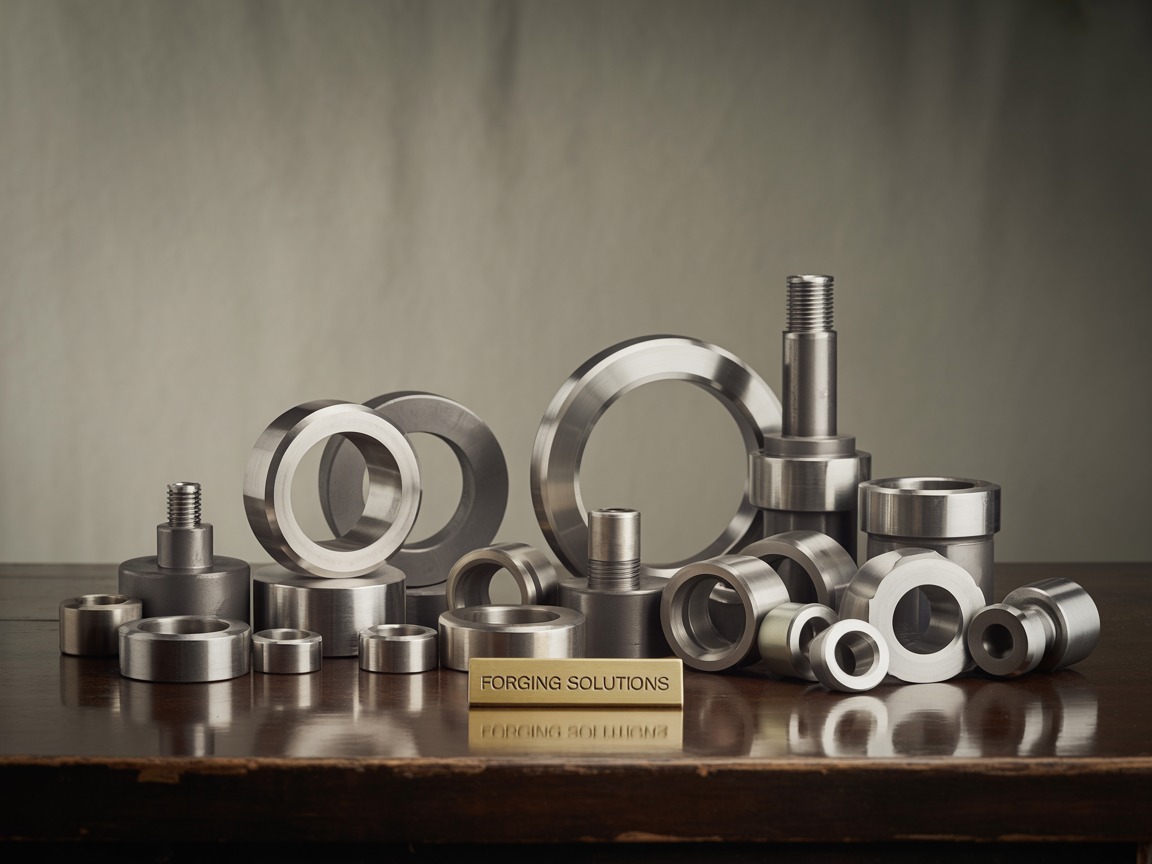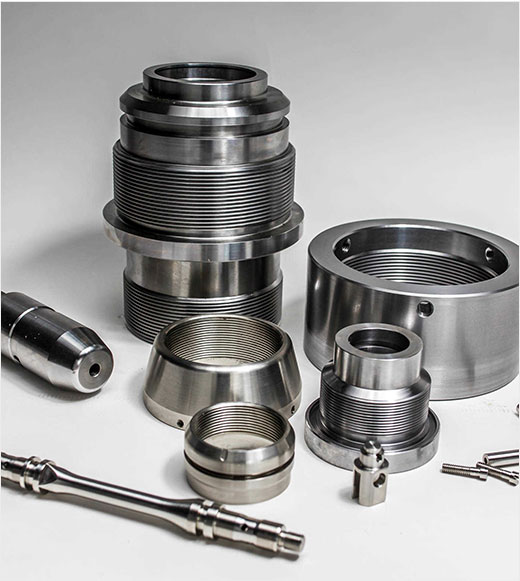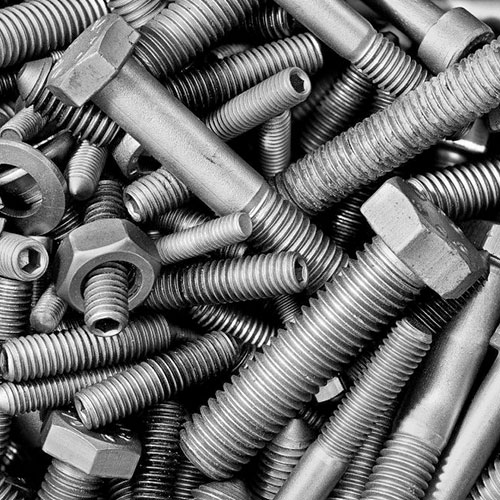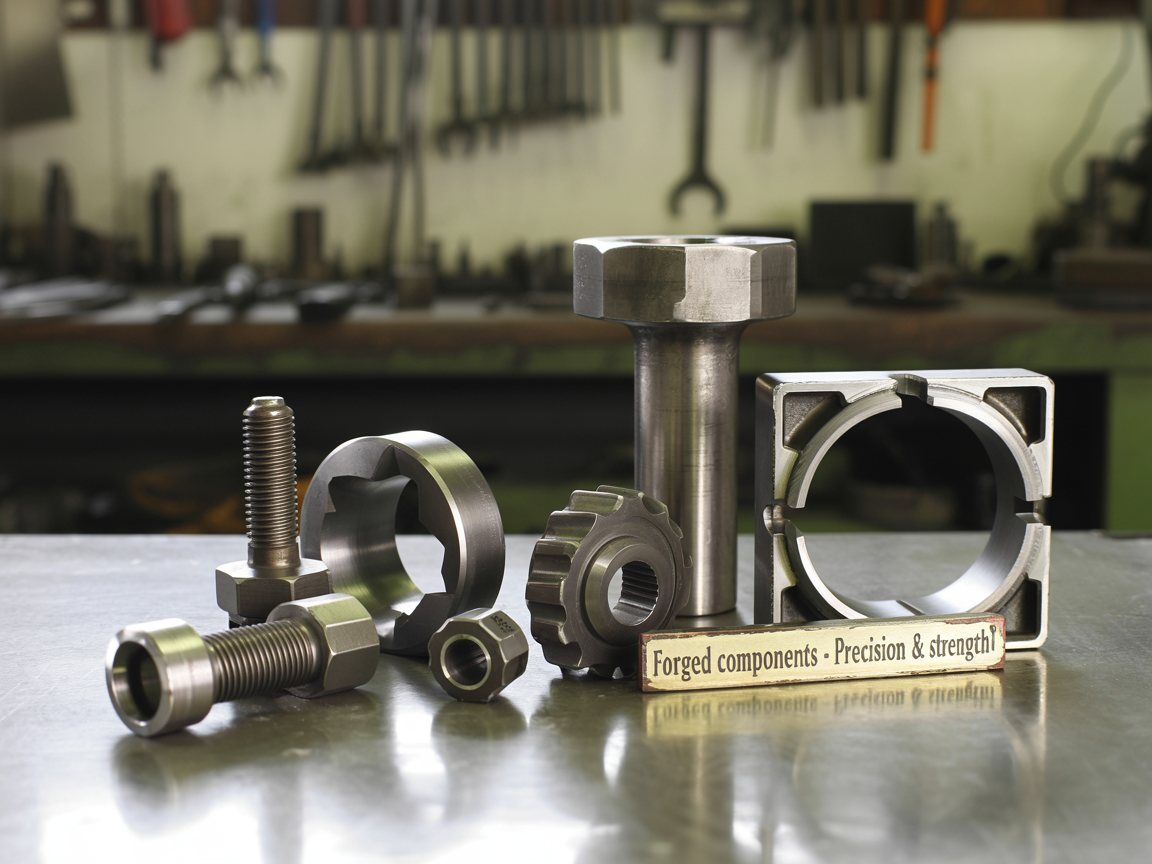Metal Forging is a typical manufacturing process of shaping metal using localized compressive forces, it is usually performed with forging tools like hammers or presses. Main materials used for the metal forging process including carbon steel, alloy steel, stainless steel, iron, aluminum, and titanium. Forged parts can range in weight from less than a kilogram to hundreds of metric tons. The common equipment and tools used for forging are hammer and anvil. The hammer is attached to an anvil, during the forging process, it is raised and dropped into the workpiece to add force. The most common types of forging processes are cold forging and hot forging.
There are plenty of forging techniques, each with its advantages and drawbacks.
Metal for Forging
From basic carbon steels and superalloys to high-integrity nickel alloys, we use a wide variety of high-quality forging metals and can provide excellent forging solutions tailored to the specific needs of various industries and projects, meeting a wide range of stringent specifications:
Carbon Steel Forgings:
Carbon steel is one of the most common forging materials. It features good forgeability and mechanical properties and is highly praised for its low cost, high strength, and good wear resistance. The carbon content in carbon steel ranges from 0.06% to 1.5%, and it can be classified into low carbon steel, medium carbon steel, and high carbon steel. As the carbon content increases, the hardness and wear resistance of the steel gradually improve, while plasticity and toughness correspondingly decrease. Different carbon content materials can be selected as needed. Carbon steel forgings have high strength and good wear resistance, suitable for manufacturing various parts such as bearings, gears, bolts, etc. For example, in the aerospace sector, many parts like aircraft landing gears and fuselage frames may use steel forgings; some key shaft components in automobile engines also use steel forgings.
Aluminum Forgings:
Aluminum forgings are lightweight, high-strength mechanical parts with excellent formability, weldability, corrosion resistance, thermal conductivity, and electrical conductivity. They are widely used in aerospace, automotive, steel, power, and shipbuilding industries. For instance, in aerospace, some structural components use aluminum forgings to reduce weight while maintaining strength; in automotive manufacturing, aluminum forgings are used on some body parts to reduce vehicle weight and improve fuel efficiency.
Stainless Steel Forgings:
Stainless steel forgings offer excellent corrosion resistance, heat resistance, and mechanical properties. Stainless steel materials for forging include 300 series (303, 304, 316, 317, etc.), 400 series (410, 420, 400c), and hardneing stainless steel. They are widely used in chemical, food processing, medical devices, and architectural decoration fields. For example, some valves and pipe fittings in chemical pipelines may be made from stainless steel forgings to resist chemical corrosion; parts in food processing equipment also use stainless steel forgings to meet hygiene and corrosion resistance requirements.
Tool Steel Forgings:
Tool steel has high hardness, wear resistance, and the ability to maintain a sharp edge. After forging, it is used to produce molds, castings, and cutting tools. High carbon alloy tool steel is the most commonly used forging die steel, with high hardness and wear resistance. Common high carbon alloy tool steels include T7. T8. T10. T12. etc. These steels have a high carbon content and are suitable for making punching dies, shear dies, cold extrusion dies, etc.
Nickel Alloy Forgings:
Nickel-based alloys are high-temperature alloys with characteristics such as high temperature resistance, corrosion resistance, high strength, and high toughness. They are widely applied in petroleum, aerospace, chemical, nuclear energy, and other fields. For example, in aerospace engines, high-temperature parts like turbine disks require nickel-based alloy forgings to meet demanding performance requirements under hot and complex environments. In petroleum extraction, some downhole tools facing high temperature, high pressure, and corrosive environments also use nickel-based alloy forgings.
Titanium Alloy Forgings:
Titanium alloy forgings have excellent properties such as low density, high strength, high temperature resistance, and corrosion resistance. They are widely used in aerospace, for example, in aircraft engine blades and fuselage structural parts; in the medical field, due to their good biocompatibility, they are used for manufacturing implants such as artificial joints.
Magnesium Alloy Forgings:
Magnesium alloy forgings are lightweight and have high specific strength and stiffness, as well as good vibration damping. They are commonly used in aerospace and automotive manufacturing. In aerospace, they are used for parts with stringent weight requirements; in automotive manufacturing, they help reduce vehicle weight and improve fuel economy. For example, magnesium alloy forgings may be used for car wheel hubs.
Alloy Steel Forgings:
Alloy steel forgings are made by adding one or more alloying elements to carbon steel, resulting in different properties such as improved strength, toughness, wear resistance, and corrosion resistance. They are commonly used in machinery manufacturing, automotive, shipbuilding, and other industries. They are often selected for manufacturing high-demand parts such as shafts and gears.
Copper Alloy Forgings:
Copper forgings have excellent electrical and thermal conductivity, along with good corrosion resistance and machinability. Therefore, copper is a commonly used forging material. Copper forging processes mainly include cold forging, semi-hot forging, isothermal forging, and hot forging. They are suitable for producing various pipes, machined parts, lighting fixtures, tools, machine tools, electronic devices, and conductors. They are often used in power equipment, communication equipment, and plumbing components.
Other Materials:
In addition to the above common metals, some special materials can be used for forgings, such as cobalt-based alloy forgings, which have high temperature resistance, wear resistance, and corrosion resistance, often used in aerospace engines and gas turbines for high-temperature parts; iron-based high-temperature alloy forgings are used in applications requiring high temperature strength and oxidation resistance.
The choice of forging material should be based on specific usage and process requirements, ensuring that the final product has good mechanical properties and durability. Different materials require different forging processes, which must be designed and controlled according to the material characteristics. By reasonably selecting and using forging materials, product quality and performance can be improved to meet the needs of different industries.






